Midway through Irish Country Living’s WhatsApp video call with James Hennessy, he excuses himself to deliver a message to a colleague; in fluent Swahili.
“There’s cows after breaking into the farm,” translates the Cork native for our benefit, as he settles back down under the shade of a pawpaw tree to continue our conversation.
So just like their Irish counterparts, African cows know their own minds. Some things in agriculture are simply universal, even when you are almost 7,000 miles from home; in this case, in the village of Sarambei in Kenya, smack bang on the equator.

James Hennessy with Dr Seamus Crosse of Greenfield International visiting a farming project.
James is co-founder and programme co-ordinator of Development Pamoja, a charity providing co-operative agricultural, medical and community support to a predominantly rural population, where the average farm family income is about €100 a month.
James, who was raised on a dairy farm in Glenville run by his parents Jerry and Rena Hennessy (his sister is well-known Teagasc grassland researcher Deirdre Hennessy), has lived in Kenya since 2007.
Having completed a master’s in economic policy in the developing world, he originally worked with another charity, but left to set up his own organisation with local colleagues Gideon Kipruto (Masai), David Okinja and Mary Waruguru (who has since moved on), initially with a focus on supporting small-scale farmers.
Today, Development Pamoja operates two bases in the villages of Sarambei and Rongai (40km apart), including two primary health care centres and an 11-acre demonstration farm in Sarambei.
Farming in Kenya
James explains that the local Kalenjin people in this semi-arid region are generally subsistence farmers and are traditionally pasture-less.
This creates several challenges; for instance, as farmers have to move their cows longer distances for food and water, yield is affected.
“So, they wouldn’t be getting more than one to two litres of milk a day,” explains James.
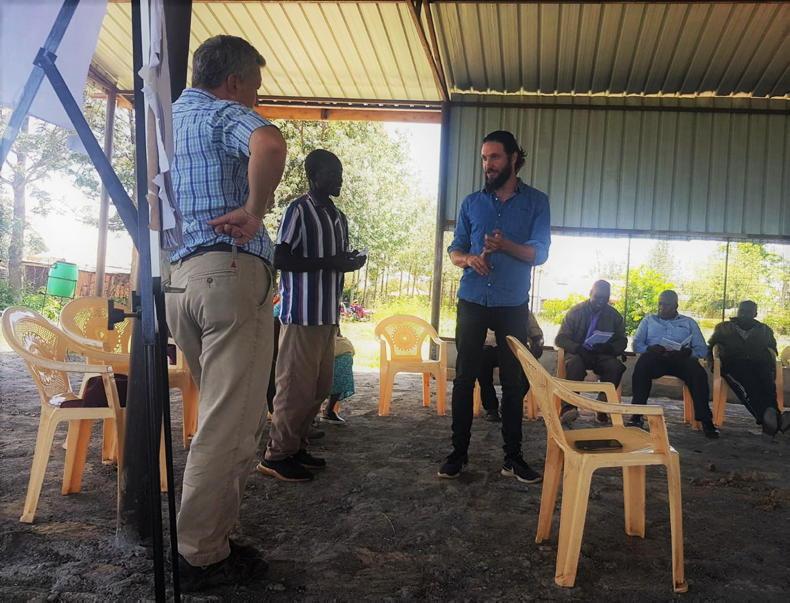
James Hennessy attending a local discussion group for farmers in rural Kenya.
Furthermore, as farm income is low, farmers tend to stick to planting staple food crops such as maize and beans, but these can have up to a 50% failure rate in this particular region, especially given the impacts of climate change on rainfall patterns.
However, Development Pamoja is working in co-operation with the farmers to address these issues.
One programme on the demonstration farm has been investigating the cross-breeding of indigenous Boran cows with higher-yielding breeds, such as Ayrshire and Jersey.
Drought-resistant fodder
At the same time, they have also been experimenting with more drought-resistant fodder such as sorghum and lucerne to help increase milk yields, while also trialling crops that are more suited to the region, such as sweet potatoes, as well as fruit trees such as mangos, pawpaws and bananas.
“We’ll plant a crop and see how well it does and then we go out and advise the farmers,” says James, explaining that the farm recently had the first silage demonstration in the area, thanks to the purchase of a tractor and forage harvester made possible by an anonymous donation.
This tractor is now available to loan out to local farmers, while Development Pamoja has also built a community store on the farm, so families can keep their hay, etc, safe for the dry season.

Cutting silage in Sarambei, Kenya.
Central to this work is a co-operative model. Development Pamoja has set up several 'table banking' groups, made up of about 20 people each, who save together and then take loans from the shared fund, allowing them credit to buy seed, fertiliser, etc, which they subsequently repay over a longer time period.
This system gives farmers a sense of ownership in the projects, but also helps to measure the success of the initiatives, explains James.
“If it wasn’t making a difference, people wouldn’t pay back their loans because they’d say they didn’t have the money,” he says.
“Like, we can see when they introduce silage, the milk has gone up. It’s never going to go up massively, but 100% increase here is huge, even if you’re going from two litres to four litres, that’s a big deal.”
Community support
Health care is another major focus of Development Pamoja through its two primary medical centres.
Before the project, for instance, there was no physiotherapy available in the area, unless people were willing to travel 50km to the nearest town of Nakuru.
Other services include vaccinations and antenatal and reproductive health care, as well as dealing with challenges such as malaria and typhoid. Care is provided for free for over 65s and to those with disabilities and at an affordable rate for the rest of the community.
“Nobody would ever pay more than €3 to €4 for any service that we offer,” says James.
But there are many other projects. For instance, Development Pamoja has partnered with Irish period product company We Are Riley to tackle period poverty.
James explains that products such as sanitary towels have risen in price by 30% in the last year in Kenya, which has put them out of reach for many families who could previously afford them.
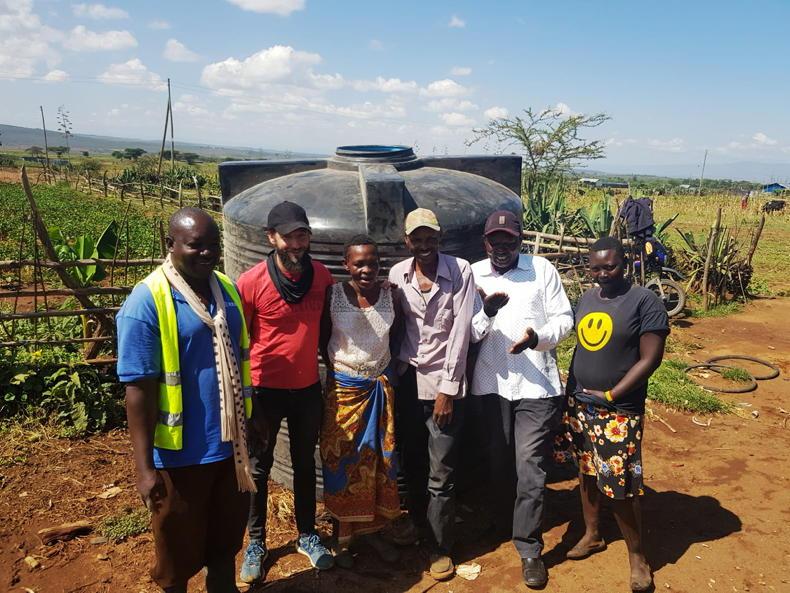
Providing water tanks is a focus for Development Pamoja. Pictured left to right are Okinja, James, Veronica, Daniel, Masai and Stella.
“If you have a family earning €3 a day, the money is going to go on food, it’s not going to go on sanitary towels,” he spells out starkly, explaining that this results in many girls missing between four and five days of school per month.
Working with Development Pamoja, We Are Riley has provided over 15,000 period products to 1,500 Kenyan girls, as well as sponsoring a doctor-led menstruation education programme in schools to help tackle what is still a taboo topic.
Solar lamps
Another effective project is the solar lamp programme. It gets dark on the equator every evening at 6pm, which means that, traditionally, families have had to rely on expensive - and toxic - paraffin lamps for light.
However, solar lamps cost just €20 to install and don’t just provide light to allow families to cook or children to do their homework, they also facilitate mobile phones to be charged, which is vital, as many people rely on their phones to make payments for all kinds of transactions (there are no ATMs or banks in the area).
“It’s so simple and it’s so effective,” says James of the solar lamp project, which is funded by Afri: Action From Ireland.
Fundraising
Development Pamoja is fortunate to receive financial and other support from a variety of organisations, from Electric Aid (the ESB and Eirgrid staff social justice and development fund) and Misean Cara to the Irish Co-operative Society and the Caring and Sharing Association (CASA).
With the farm, for instance, in 2019, the Embassy of Ireland, in partnership with Teagasc, Kenya Agriculture and Livestock Research Organisation, Greenfield International and Self Help Africa in Kenya, collaborated on the project to improve systems of forage- based dairy farming, with initiatives including employing a full-time farming expert (extension officer) to provide training, support and oversight over 123 local farmers who trialled various initiatives on their own farms.

Water harvesting is a key focus of Development Pamoja; this picture shows a water dam being lined.
Fundraising is also vital, with many generous individuals supporting their work, but general donations are not used to fund salaries or administration costs (these are funded separately via sales, tax refunds and directed donations).
Asking James where he sees the need for support now in terms of agriculture, he highlights two projects.
The first is to increase the number of water tanks purchased to allow families access to clean water, but also for animals and crop irrigation.
A 5,000-litre tank costs €300 and farmers in their co-op save €100 as a down-payment and then pay back the other €200 over one to two years. Once paid off, they can also use the tank as 'insurance' to take a further loan.
But this project has wider benefits, especially on the quality of life for women and children who would otherwise have to walk miles to collect clean drinking water or bring cattle to the river.
“If you can increase the amount of water harvesting and water tanks, you are making sure the women have more time to themselves and you’re making sure that kids go to school on a regular basis,” says James.
The second project is working with female farmers on a dairy goat trial, as cows traditionally belong to men.
A dairy goat costs €200 and Development Pamoja is currently undertaking a trial to see what breeds and feeding programmes will work best in the region.
The ultimate aim would be to “have a full functioning co-op society” for everything for sharing machinery to milk distribution, as “the middle men here take everything off farmers,” says James.
There’s plenty more to do, but Christmas is coming too. As James hopes to travel home for his niece’s communion next summer, he will most likely be spending Christmas Day on the farm, before going for dinner with the local Kiltegan Fathers, probably for a chicken rather than our traditional turkey, though the Kalenjin people favour goat for the big day.
“It’s family-orientated, just like in Ireland,” smiles James.
Another thing that’s universal so, just like those breakaway cows…
For further information or to make a donation, visit www.developmentpamoja.org or email devpamoja@gmail.com.
Midway through Irish Country Living’s WhatsApp video call with James Hennessy, he excuses himself to deliver a message to a colleague; in fluent Swahili.
“There’s cows after breaking into the farm,” translates the Cork native for our benefit, as he settles back down under the shade of a pawpaw tree to continue our conversation.
So just like their Irish counterparts, African cows know their own minds. Some things in agriculture are simply universal, even when you are almost 7,000 miles from home; in this case, in the village of Sarambei in Kenya, smack bang on the equator.

James Hennessy with Dr Seamus Crosse of Greenfield International visiting a farming project.
James is co-founder and programme co-ordinator of Development Pamoja, a charity providing co-operative agricultural, medical and community support to a predominantly rural population, where the average farm family income is about €100 a month.
James, who was raised on a dairy farm in Glenville run by his parents Jerry and Rena Hennessy (his sister is well-known Teagasc grassland researcher Deirdre Hennessy), has lived in Kenya since 2007.
Having completed a master’s in economic policy in the developing world, he originally worked with another charity, but left to set up his own organisation with local colleagues Gideon Kipruto (Masai), David Okinja and Mary Waruguru (who has since moved on), initially with a focus on supporting small-scale farmers.
Today, Development Pamoja operates two bases in the villages of Sarambei and Rongai (40km apart), including two primary health care centres and an 11-acre demonstration farm in Sarambei.
Farming in Kenya
James explains that the local Kalenjin people in this semi-arid region are generally subsistence farmers and are traditionally pasture-less.
This creates several challenges; for instance, as farmers have to move their cows longer distances for food and water, yield is affected.
“So, they wouldn’t be getting more than one to two litres of milk a day,” explains James.

James Hennessy attending a local discussion group for farmers in rural Kenya.
Furthermore, as farm income is low, farmers tend to stick to planting staple food crops such as maize and beans, but these can have up to a 50% failure rate in this particular region, especially given the impacts of climate change on rainfall patterns.
However, Development Pamoja is working in co-operation with the farmers to address these issues.
One programme on the demonstration farm has been investigating the cross-breeding of indigenous Boran cows with higher-yielding breeds, such as Ayrshire and Jersey.
Drought-resistant fodder
At the same time, they have also been experimenting with more drought-resistant fodder such as sorghum and lucerne to help increase milk yields, while also trialling crops that are more suited to the region, such as sweet potatoes, as well as fruit trees such as mangos, pawpaws and bananas.
“We’ll plant a crop and see how well it does and then we go out and advise the farmers,” says James, explaining that the farm recently had the first silage demonstration in the area, thanks to the purchase of a tractor and forage harvester made possible by an anonymous donation.
This tractor is now available to loan out to local farmers, while Development Pamoja has also built a community store on the farm, so families can keep their hay, etc, safe for the dry season.

Cutting silage in Sarambei, Kenya.
Central to this work is a co-operative model. Development Pamoja has set up several 'table banking' groups, made up of about 20 people each, who save together and then take loans from the shared fund, allowing them credit to buy seed, fertiliser, etc, which they subsequently repay over a longer time period.
This system gives farmers a sense of ownership in the projects, but also helps to measure the success of the initiatives, explains James.
“If it wasn’t making a difference, people wouldn’t pay back their loans because they’d say they didn’t have the money,” he says.
“Like, we can see when they introduce silage, the milk has gone up. It’s never going to go up massively, but 100% increase here is huge, even if you’re going from two litres to four litres, that’s a big deal.”
Community support
Health care is another major focus of Development Pamoja through its two primary medical centres.
Before the project, for instance, there was no physiotherapy available in the area, unless people were willing to travel 50km to the nearest town of Nakuru.
Other services include vaccinations and antenatal and reproductive health care, as well as dealing with challenges such as malaria and typhoid. Care is provided for free for over 65s and to those with disabilities and at an affordable rate for the rest of the community.
“Nobody would ever pay more than €3 to €4 for any service that we offer,” says James.
But there are many other projects. For instance, Development Pamoja has partnered with Irish period product company We Are Riley to tackle period poverty.
James explains that products such as sanitary towels have risen in price by 30% in the last year in Kenya, which has put them out of reach for many families who could previously afford them.

Providing water tanks is a focus for Development Pamoja. Pictured left to right are Okinja, James, Veronica, Daniel, Masai and Stella.
“If you have a family earning €3 a day, the money is going to go on food, it’s not going to go on sanitary towels,” he spells out starkly, explaining that this results in many girls missing between four and five days of school per month.
Working with Development Pamoja, We Are Riley has provided over 15,000 period products to 1,500 Kenyan girls, as well as sponsoring a doctor-led menstruation education programme in schools to help tackle what is still a taboo topic.
Solar lamps
Another effective project is the solar lamp programme. It gets dark on the equator every evening at 6pm, which means that, traditionally, families have had to rely on expensive - and toxic - paraffin lamps for light.
However, solar lamps cost just €20 to install and don’t just provide light to allow families to cook or children to do their homework, they also facilitate mobile phones to be charged, which is vital, as many people rely on their phones to make payments for all kinds of transactions (there are no ATMs or banks in the area).
“It’s so simple and it’s so effective,” says James of the solar lamp project, which is funded by Afri: Action From Ireland.
Fundraising
Development Pamoja is fortunate to receive financial and other support from a variety of organisations, from Electric Aid (the ESB and Eirgrid staff social justice and development fund) and Misean Cara to the Irish Co-operative Society and the Caring and Sharing Association (CASA).
With the farm, for instance, in 2019, the Embassy of Ireland, in partnership with Teagasc, Kenya Agriculture and Livestock Research Organisation, Greenfield International and Self Help Africa in Kenya, collaborated on the project to improve systems of forage- based dairy farming, with initiatives including employing a full-time farming expert (extension officer) to provide training, support and oversight over 123 local farmers who trialled various initiatives on their own farms.

Water harvesting is a key focus of Development Pamoja; this picture shows a water dam being lined.
Fundraising is also vital, with many generous individuals supporting their work, but general donations are not used to fund salaries or administration costs (these are funded separately via sales, tax refunds and directed donations).
Asking James where he sees the need for support now in terms of agriculture, he highlights two projects.
The first is to increase the number of water tanks purchased to allow families access to clean water, but also for animals and crop irrigation.
A 5,000-litre tank costs €300 and farmers in their co-op save €100 as a down-payment and then pay back the other €200 over one to two years. Once paid off, they can also use the tank as 'insurance' to take a further loan.
But this project has wider benefits, especially on the quality of life for women and children who would otherwise have to walk miles to collect clean drinking water or bring cattle to the river.
“If you can increase the amount of water harvesting and water tanks, you are making sure the women have more time to themselves and you’re making sure that kids go to school on a regular basis,” says James.
The second project is working with female farmers on a dairy goat trial, as cows traditionally belong to men.
A dairy goat costs €200 and Development Pamoja is currently undertaking a trial to see what breeds and feeding programmes will work best in the region.
The ultimate aim would be to “have a full functioning co-op society” for everything for sharing machinery to milk distribution, as “the middle men here take everything off farmers,” says James.
There’s plenty more to do, but Christmas is coming too. As James hopes to travel home for his niece’s communion next summer, he will most likely be spending Christmas Day on the farm, before going for dinner with the local Kiltegan Fathers, probably for a chicken rather than our traditional turkey, though the Kalenjin people favour goat for the big day.
“It’s family-orientated, just like in Ireland,” smiles James.
Another thing that’s universal so, just like those breakaway cows…
For further information or to make a donation, visit www.developmentpamoja.org or email devpamoja@gmail.com.









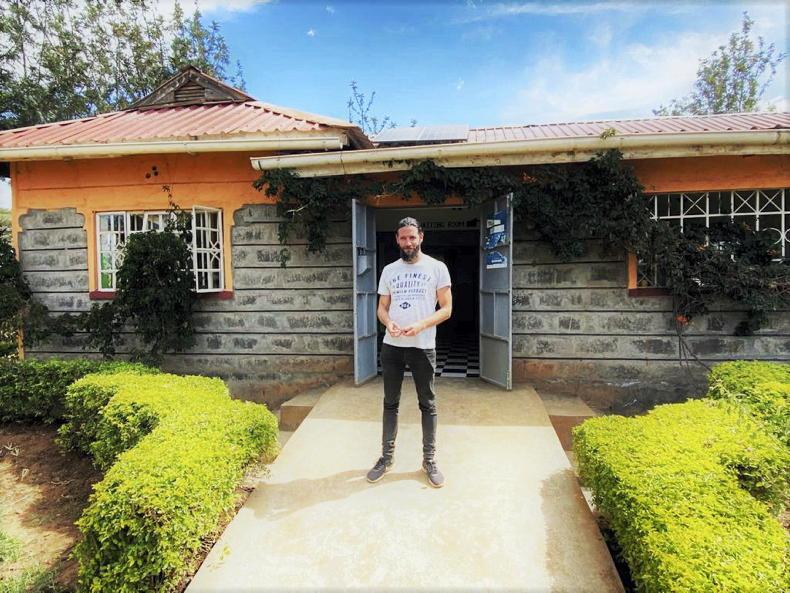
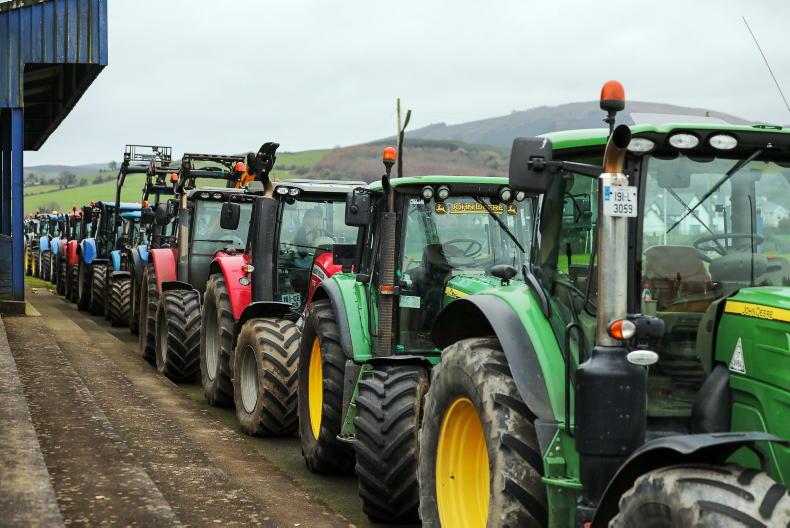
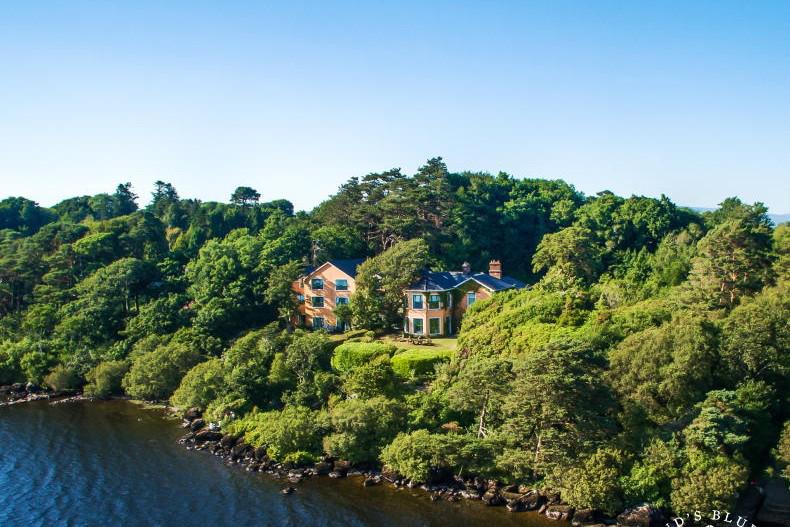
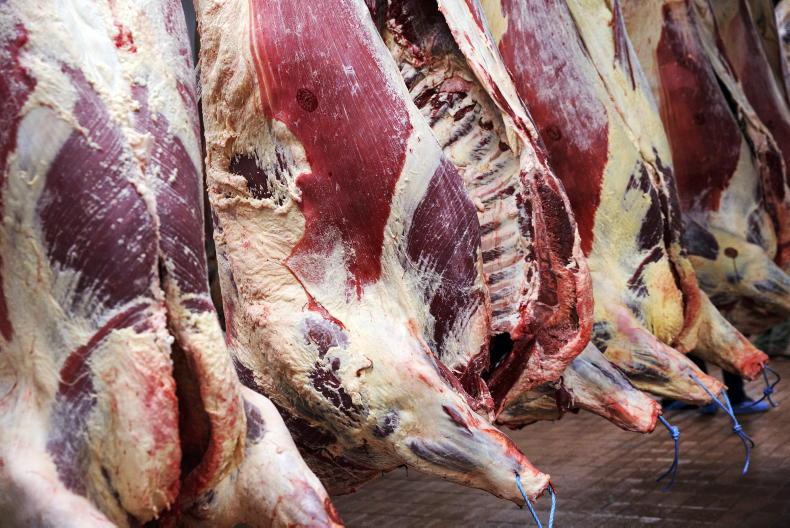
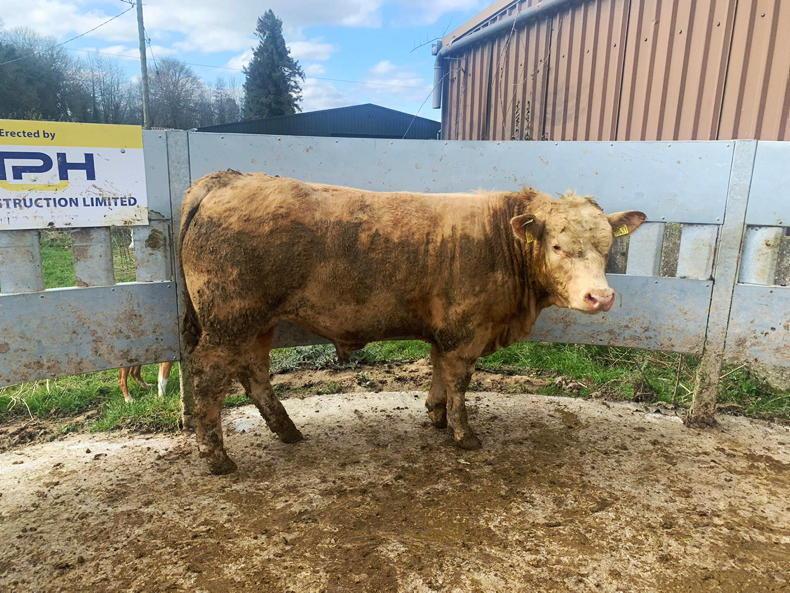
SHARING OPTIONS